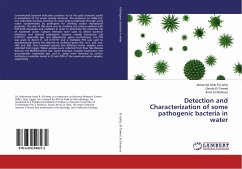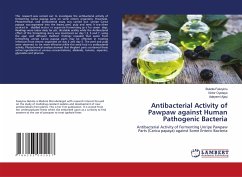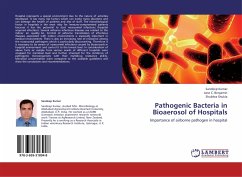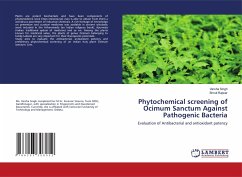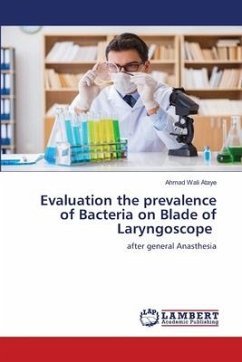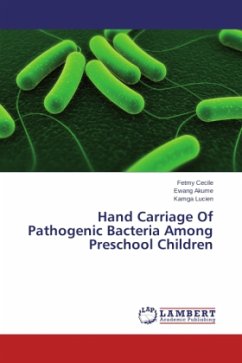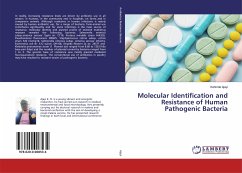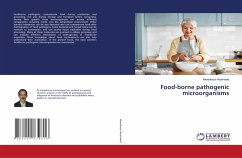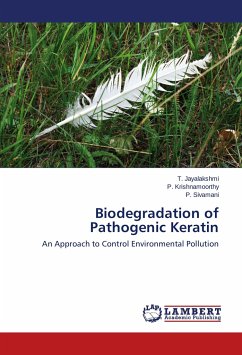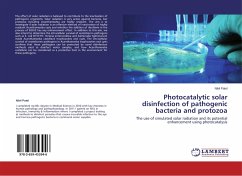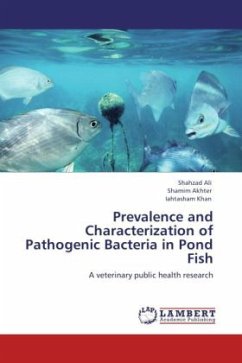
Prevalence and Characterization of Pathogenic Bacteria in Pond Fish
A veterinary public health research
Versandkostenfrei!
Versandfertig in 6-10 Tagen
32,99 €
inkl. MwSt.

PAYBACK Punkte
16 °P sammeln!
The prevalence and characterization of pathogenic bacteria from fish cultured in ponds fertilized with organic manures was studied. Almost the same type of bacterial species were isolated from organic manures, ponds water and organs of fish. Chicken manure supported more bacterial species as proved by its high total aerobic bacterial count than cow manure. Total aerobic bacterial count differed significantly in different organs of fish in three ponds except in case of liver. High prevalence of Aeromonas sp. was found in all systems except in chicken manure treated pond, where Pseudomonas sp. w...
The prevalence and characterization of pathogenic bacteria from fish cultured in ponds fertilized with organic manures was studied. Almost the same type of bacterial species were isolated from organic manures, ponds water and organs of fish. Chicken manure supported more bacterial species as proved by its high total aerobic bacterial count than cow manure. Total aerobic bacterial count differed significantly in different organs of fish in three ponds except in case of liver. High prevalence of Aeromonas sp. was found in all systems except in chicken manure treated pond, where Pseudomonas sp. was higher in percentage. Water and organic manures were the main source of Aeromonas sp, Bacillus sp. and Pseudomonas sp. Chicken manure was source of Proteus sp. and Serratia sp. while Serratia sp. was also isolated from cow manures. Zoonotic pathogens isolated from fish are important from veterinary public health point of view and a broad spectrum research is highly called for. These bacteria cause diseases including haemorrhage, fin rot, skin necrosis, chronic lesions on caudal fin, epizootic ulcerative syndrome and septicaemia in fish.



